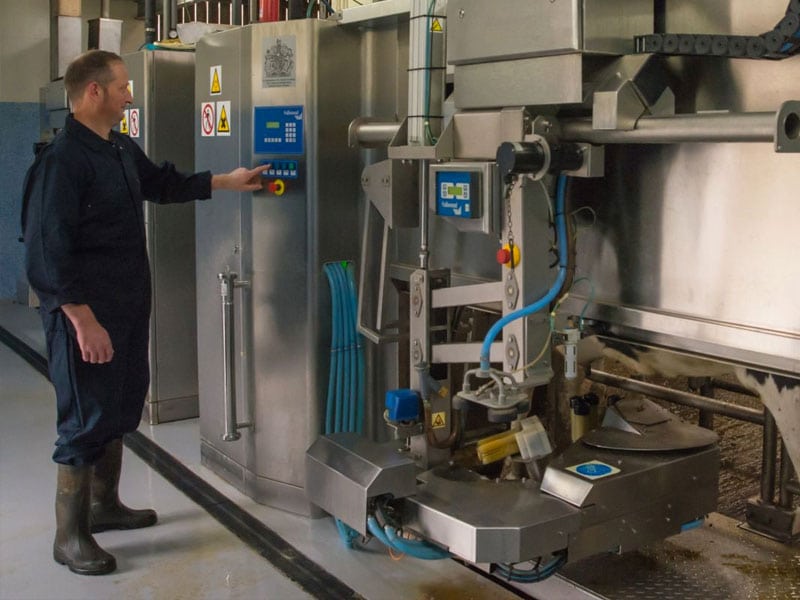Farmer/owner: Chris & Erika Bargh
Farm location: Blackburn, Lancashire
Farm name: Osbaldeston Hall Farm
Herd: 180 Osbar Holsteins
Milking system: Fullwood Merlin
Date of installation: May 2009
Background
Chris farms with his wife Erika at Osbaldeston Hall Farm, near Blackburn in Lancashire. His parents left milk production in 1987 in order to set-up a horse riding centre but it wasn’t until 1998 that Chris made the decision to go back into milking. He did consider robots at that time but decided it was too early so focused instead on building up milk production to 11,000 litres per cow. Ten years after the decision to go back into milk, Chris and Erika were looking for a new challenge and after much discussion and research decided to move to robotic milking.
Decision
So, in the summer of 2009 three Fullwood Merlin robots were installed into the middle of the cubicle house. Chris says that the first three months were completely exhausting spending days on end training the cows to use the robots. He was beginning to think they had made a big mistake when things started to all click into place. After only six months Chris was already totally convinced that robotic milking is the way forward and has many advantages for the farmer.
Current situation
Chris and Erika now run an immaculately maintained milking unit supplying Sainsburys through their Wiseman contract. The Bargh family believe in looking after the whole herd to the highest possible standards with total focus on cow comfort, welfare and management. This focus has resulted in each of the three Merlin robots taking an average of 1800 litres of milk per day with individual cows giving an average of 35 litres per day with an average of 2.8 visits per day.
The latest development on this beautiful Lancashire farm in the heart of the Ribble Valley, is the introduction of the grazing gate segregation system. Introduced in the summer of 2010, this system now allows the cows out to grass if they have milked in the last two hours. Furthermore, it can also channel the cows one of two ways based on yield and stage of lactation. High yielders will be restricted to the nearby paddock whilst those cows with lower yields can access fields further away. Speaking to Chris and Erika in October 2010, they said they were delighted with their Merlin robots even though the initial 12 months was a steep learning curve, for them and the cows. The benefits they have seen in overall cow health is excellent, milk yields are increasing and they are all now relaxing into the system and enjoying the flexibility that the robots have given them.
